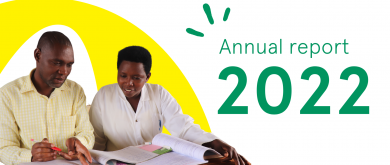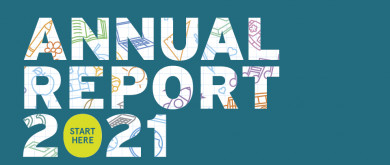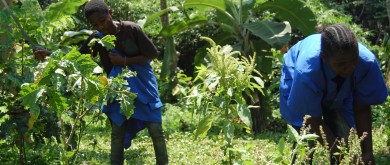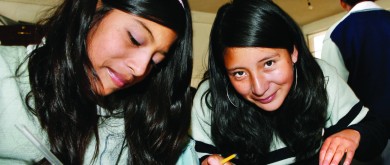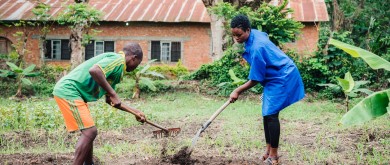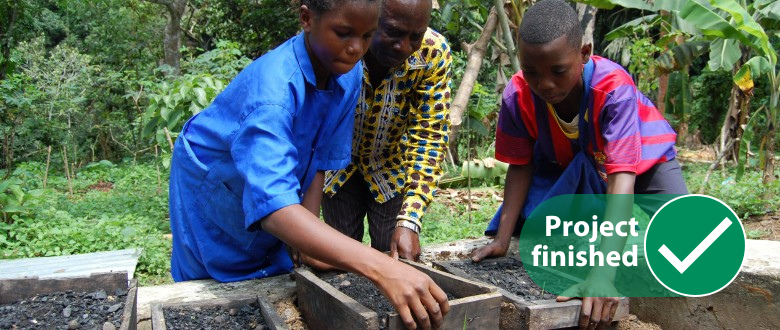
Agriculture accounts for about 60 per cent of the DRC’s labour activities. Moreover, the country is endowed with a massive amount of available arable land. This creates great business opportunities for the country’s young people, especially for those living in rural areas. In the DRC’s context, it makes good sense to combine agricultural production with self-employment.
Yet transition from school to work is becoming more difficult for youth, and for young women in particular. The quality and relevance of secondary agricultural education needs to be improved, which requires professional development of school leaders and teachers. Only then can the DRC’s youth pursue agri-entrepreneurship and seize the opportunities offered by their naturally rich environment.
School leaders and teachers of technical agricultural schools of schools in Bas-Fleuve, Cataractes and Lukaya have the competences to improve the quality and the relevance of teaching for all learners.
- Ministry of Primary, Secondary and Vocational Education (MEPSP)
- 3 Provincial Inspection Services (IPP)
- 30 selected secondary agricultural technical schools
The ETAGE programme strengthens the continued professional development opportunities offered to teachers and school leaders of technical agricultural education. It focuses on firmly embedding entrepreneurship education in the selected options (general agriculture, agricultural industries, agroforestry, veterinary studies and nutrition) in a cross-curricular way, rather than only offering it to students in a stand-alone course.
The programme is built around three pillars:
- Improving the relevancy and quality of the professional development for teachers so they acquire the most advanced knowledge and skills available to convey onto their students;
- Improving the relevancy and quality of the professional development for school leaders so they are capacitated to run viable and well-managed production units as grounds for practice for students and so they stimulate relevant continuous professional development of their teaching staff;
- Documenting the innovative model for entrepreneurship education at school-level and at the level of the continuous professional development of teachers and school leaders for planning and replication by IPP.
The production units of the agricultural schools function as the setting where school leaders, teachers and students put their newly acquired entrepreneurial skills into practice.
The programme contributes to the development of a widely supported strategy for relevant and quality technical agricultural education that includes approaches to school leadership, pedagogy and youth entrepreneurship.
By the end of the ETAGE programme:
IPP:
- offers relevant and quality professional development trajectories on entrepreneurship education to school leaders and teachers,
- organises the integrated model on entrepreneurship education at provincial level and shares the model with the national level.
Secondary agricultural schools:
- manage and use their production units well for both entrepreneurship education and income generation purposes,
- maintain ties with specialised services, small and medium-sized entreprises and farmers’ organisations for the continued professional development of teachers in entrepreneurship education,
- use relevant and low-cost pedagogical tools for entrepreneurship education.
To reach its goals, VVOB develops the capacity of its education partners in the DRC. VVOB uses capacity development trajectories that give partners maximal responsibility in the execution and management of their own change processes. This is done through technical assistance provided by the VVOB team in the DRC, which includes both local and international educational and change management experts.





